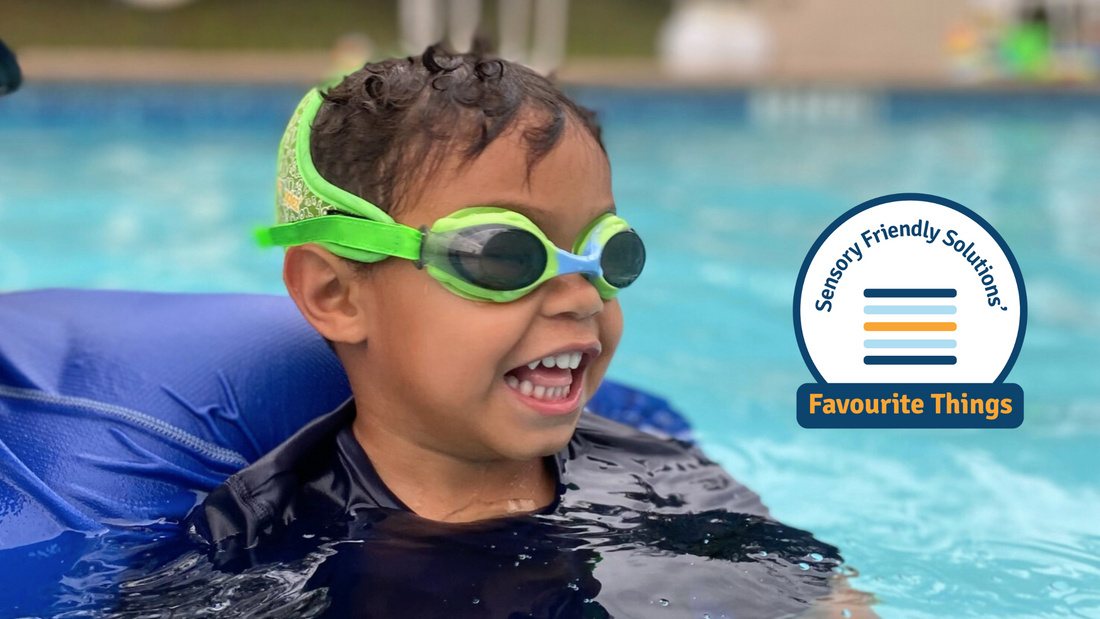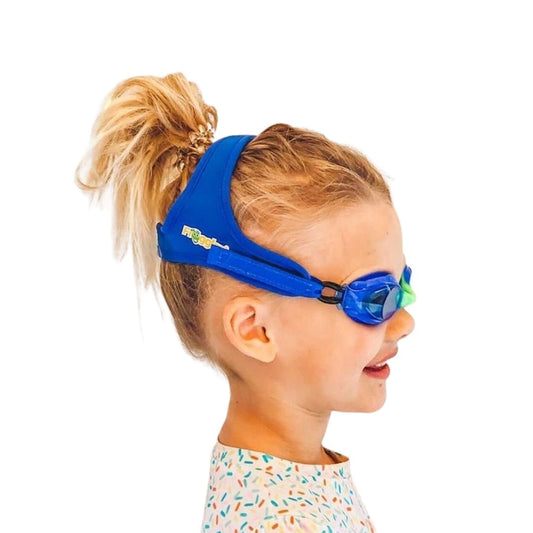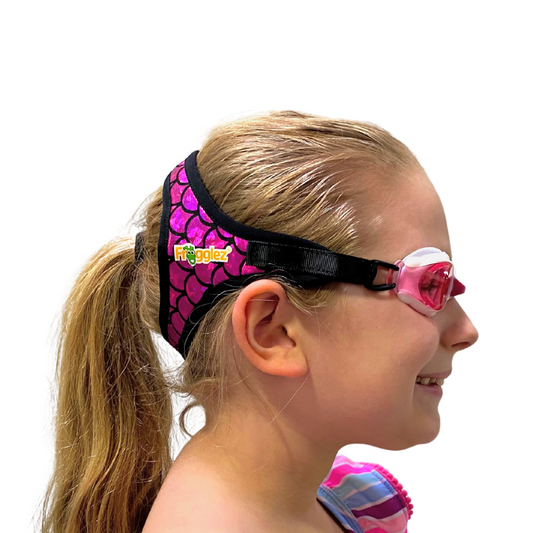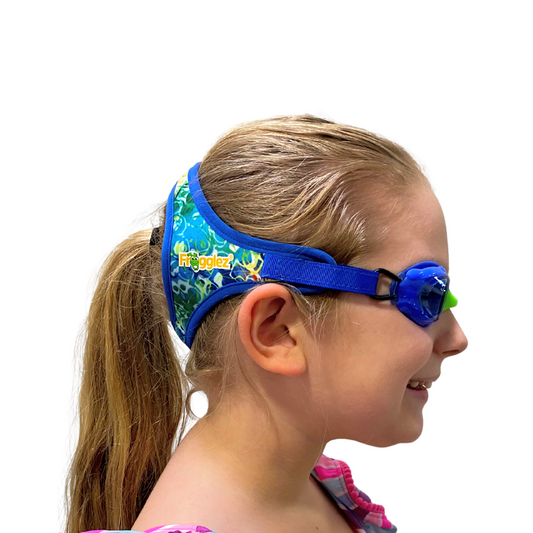Kids with sensory issues have a wide range of emotional and physical experiences with swimming. Some plunge into the pool without hesitation (or safety considerations), while others may find water a visual and tactile challenge. In either case, if your child struggles with processing sensory input, consider these suggestions to help them form lifelong respect for swimming.
Buy comfortable swim gear
For kids struggling with the fit and comfort of swimsuits, pair up a UV-protective rash guard shirt with a swim diaper, bikini bottoms, or board shorts instead. Or look for swimsuits with non-irritating flat seams made for the repetitive movements of competitive swimmers like one-piece training suits or jammers.
You'll also need swimming goggles and a swim cap to attend most swim lessons. Frogglez Goggles were awarded a spot on the coveted Favourite Things list published by Sensory Friendly Solutions. Our innovative swim goggles were chosen because the soft fabric strap glides overhead without pulling hair and provides gentle pressure that can reduce anxiety and provide a more positive swimming experience. Hammer Head Swim Caps were also selected for their ease of use and comfort, making them perfect for children with heightened sensory perception who might struggle with tactile and proprioception issues.
Practice in the tub and have swim play dates
Once you've gotten your hands on comfortable swim goggles, swim cap and swimsuit, let your child play in their new swim gear to feel at ease with the texture and fit.
For young kids who struggle with swimwear or water discomfort, consider a "bathing suit bath" for your child. Let them put on swim gear and get in the bathtub. Encourage bubble blowing or splashing. Let them bring water toys such as action figures to "swim" with them. Also, throw a swim playdate at home and let kids play on slip-n-slides, in sprinklers, or in small kiddie pools. Always safely supervise your child during baths and water play.
Choose your swim instructor carefully
Not every swim environment or swim instructor can work with kids with sensory struggles. However, some communities have facilities that cater to neurodiverse individuals.
Look for swim instructors and swim environments experienced with sensory-sensitive swimmers. Before selecting one for your child, talk to swim instructors about their experience and how they approach swim lessons when sensory struggles are a factor. Sensory-certified or sensory-experienced instructors will be skilled and patient.
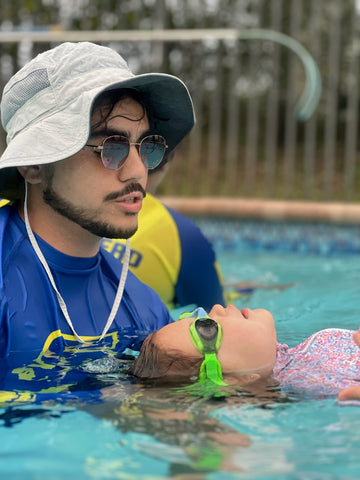
Get swimming lessons during slow times
Sometimes busy neighborhood pools or public pools are an overwhelming stimulant for children who already struggle with oversensitivity to noise and activity.
To alleviate this problem, check your local YMCA for time slots reserved for kids with sensory issues or autism as an alternative to large, noisy environments. Consider private lessons in a friend's backyard pool or choose smaller, temperature-controlled swim schools rather than large settings.
Slowly build sensory tolerance to swim environments
Water parks, large pools, and busy water pads may provide more auditory and visual stimulation than your child can manage. Consider the amount of stimulation your child can tolerate before taking them to crowded water parks or large neighborhood pools.
Start your sensory sensitive child with a bathtub or backyard sprinklers and slowly build tolerance. By doing so, you begin to pave the way toward a tantrum-free day at the noisy neighborhood pool. For kids who are especially reluctant to get in the pool, read our blog with tips for parents of reluctant swimmers.
Closely supervise children and teach water safety
Many sensory-sensitive kids struggle with where they are in space and have trouble coordinating their limbs. Sometimes, kids who are active in seeking sensory input from their environment may climb or jump without having spatial awareness. This tendency can be dangerous in a water environment, so always supervise them closely and keep your child at arm's length in the pool.
Often, sensory kids with adventurous natures need explicit instructions to help them take water safety seriously. For example, it can be helpful to point out spatial concerns like jumping far enough away from the edge and making sure there are no kids at the point of landing in the pool.
Dive into swimming slowly and tread cautiously
Some kids love water from the moment they first experience it. Splashing and the feel of water contribute to their sense of enjoyment and well-being. Others struggle with the feeling of water on their bodies and the strange sense of where they are in space.
To help your child build sensory tolerance, guide them at a pace appropriate to their abilities. Building sensory stamina while avoiding meltdowns takes time. If your child sees an occupational therapist to address sensory issues, talk with the therapist about any water safety concerns you may have.

